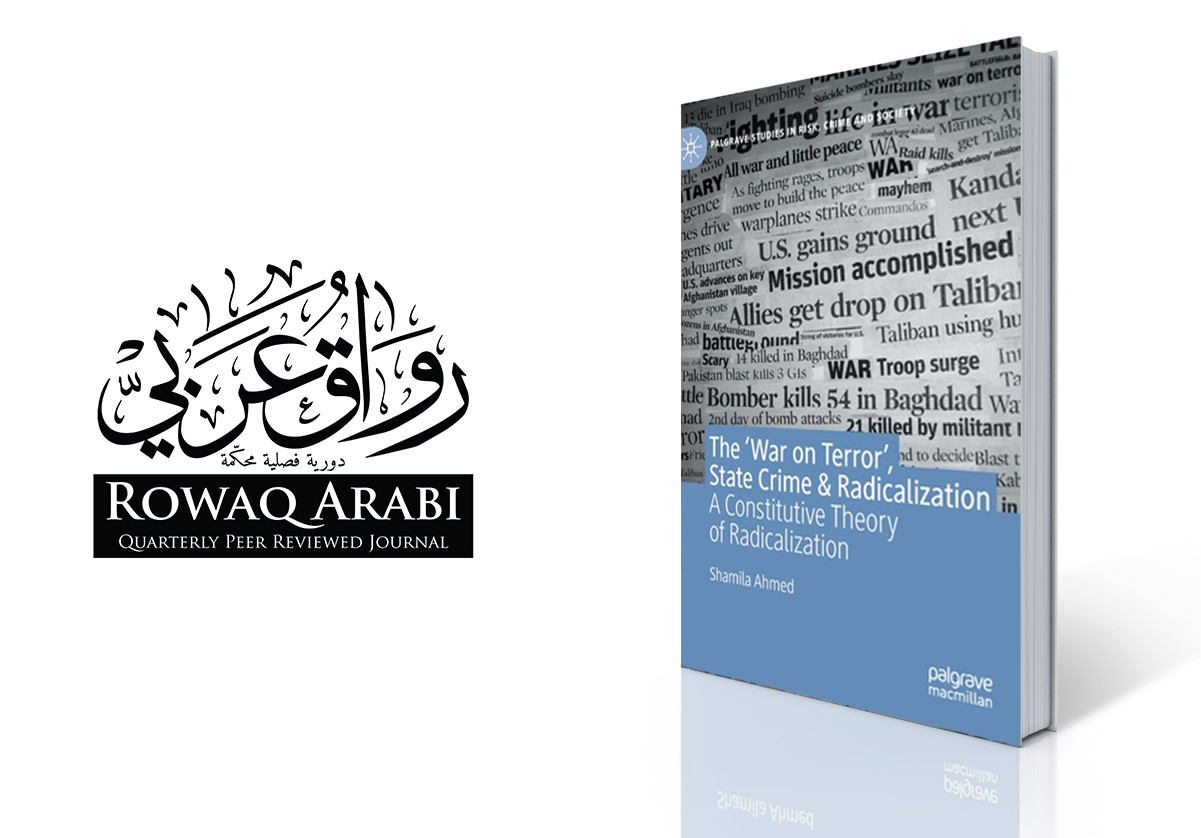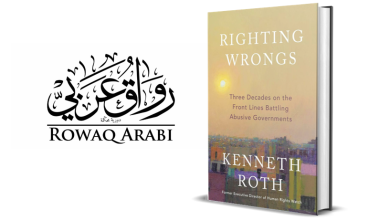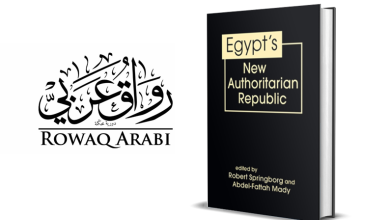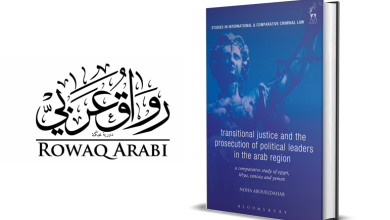Book Review: The ‘War on Terror,’ State Crime, and Radicalisation by Shamila Ahmed

Citation: Ahmed, Youssef (2021) ‘Book Review: The “War on Terror,” State Crime, & Radicalisation by Shamila Ahmed’, Rowaq Arabi 26 (2), pp. 5-8. https://doi.org/10.53833/KMVC8915
Since its start twenty years ago in the aftermath of the 9/11 attacks on the US, the ‘war on terror’ came with an exceptionally heavy price tag for human rights across the globe. A considerable body of literature devoted its attention to addressing the effect of the ‘war on terror’ on human rights, yet only a few, such as Shamila Ahmed’s ‘The “War on Terror,” State Crime, & Radicalisation,’ have attempted to present a theory of radicalisation that anchors states’ practices within the radicalisation process. Ahmed’s study, published in 2020 by Springer Nature, primarily aims to explore how within the ‘war on terror’ state practices and ‘state crimes’ have contributed to the existence of ‘Islamic terrorism’.
Throughout the book’s chapters, Ahmed links the process of radicalisation to four levels. The first is the super macro-universal level, where the author argues that international institutions contribute to radicalisation from above the state level. The macro-national level, on the other hand, involves interstate and intrastate state crimes, such as invasions, attacks on democracy, and manufacturing discourses of binaries and otherisation. Thirdly comes the meso-societal level, which constitutes states facilitating radicalisation from below by creating political, economic, and ideological conditions conducive to terrorism. Lastly comes the micro-individual level; how the deprivation of justice, and experiences shaped by binary identities, lead to emotions of fear, helplessness, and vulnerability, which may ultimately breed radicalisation.
The definition of terrorism and its construction on a conceptual level has been a point of contention for many decades, yet the author’s discussion in the first chapter on how the state is essentially constructed as a victim of terrorism, rather than one of its causes, adds an interesting perspective. The chapter further unpacks concepts central to the book, including international human rights law (IHRL), international humanitarian law (IHL), and how the violation of laws through ‘state crimes’ affects radicalisation. The author’s perspective, which attempts to deconstruct the notions of terrorism and state crimes, ultimately leads her to propose establishing a definition for terrorism that takes into consideration the fluidity between state crime and terrorism. In exploring this theoretical framework, the author’s constitutive theory of radicalisation is presented and places state crimes at the heart of the radicalisation process.
In the second chapter, the author postulates that emotions such as powerlessness and trauma (inflicted by an array of state practices) increases individuals’ need for an ideological support system which could be capitalised on by terrorist groups. In the first half of this chapter, the author provides an overview of previous theories of radicalisation and makes persuasive arguments as to why powerlessness and trauma play a central role in the radicalisation process. The second half however, which provides an overview of political Islam and Wahabism, presents a problematic picture that somewhat conflates Wahabism, Salafism, and Takfir ideologies. Although the book admits that Salafism is not monolithic, it makes reductive statements such as Salafism being a ‘politicised version of Islam’ and that a common feature of Salafism is its ‘justification of engaging in jihad against perceived and constructed aggressors.’[1][2] Such a view overlooks how Salafism has evolved over the past century; it dismisses the existence of a plethora of Salafi strands and overlooks the arguably apolitical and largely non-violent strand of ‘quietist’ Salafism.[3]
Central to grasping how the ‘war on terror’ fuels radicalisation, is understanding state power and how it creates and institutionalises discourses. In the third chapter, the author looks at the construction of the 9/11 attacks (and by extension, the ‘war on terror’) as a threat to universal values. In doing so, states’ reaction to the attacks was articulated as a legitimate war, emphasising a militaristic approach that stretched the contours of acceptable responses. Transgressions against human rights safeguards, which ultimately contribute to radicalisation, have been sustained by propagating a discourse that projects a binary division of humanity: ‘us’ and ‘them.’ The author’s outlook leads her to a conclusion echoed throughout the book: ‘the war on terror’ is a self-defeating one. A key argument Ahmed makes in this chapter is how the macro-universal level interacts with the macro-national and meso-societal ones. On the macro-universal level, the author argues that institutions, such as the United Nations, shaped the parameters of state responses to 9/11. Ahmed argues that specific UN Security Council resolutions ‘obligated’ states to confront terrorism, and in doing so states were unable to respond to terrorism non-violently; and in fact, were provided the latitude to violate laws and protocols aimed at safeguarding human rights.[4] Through looking at the macro-national interstate and intrastate crimes (specifically those committed by the UK and the US), the author argues that counterterrorism policies violating human rights, and the effect of the ‘war on terror’ on other states, have been facilitated by the macro-universal role played by international institutions such as the UN.
In its attempt to trace the roots of ‘Islamic terrorism,’ the fourth chapter addresses the role of the UK and the US in the emergence of al-Qaeda during and after the Soviet Union’s invasion of Afghanistan. Of particular importance to the chapter is how the UK and the US played a central role in financing al-Qaeda and more interestingly, how they contributed to the formation of its ideology which constitutes a meso-societal level of facilitating radicalisation. The author draws attention to how during the Soviet invasion, the UK and the US constructed communism through discourses of otherisation, which, according to Ahmed, created the basis for jihadi discourses that will come back to haunt the West.
The attacks on Paris in 2015 were unquestionably reminiscent of the 9/11 attacks on the US, both in terms of the shock they represented and the reactions they induced. In the fifth chapter, Ahmed again highlights the securitised counterterrorism and emergency laws enforced in France and the UK in the aftermath of the Paris attacks and how they impact the macro-national level of radicalisation. Taking into consideration the discourse produced after the attacks and its intersection with the refugee crisis, Ahmed notes ‘how 9/11 and the Paris terrorist attacks were catalysts for spurring a series of international and national measures, all of which increased the power of states to violate and deviate from established safeguards.’[5] The chapter further discussed the macro-universal level through tracing the development of IHL and IHRL and outlining how the ‘war on terror’ affected this level. Most notably, this section discusses the inaction of the international community and its lack of intervention in particular instances, including in Syria, to stop genocide and crimes against humanity, and how this ties to radicalisation.
The sixth chapter looks at how states’ political and economic interests influence terrorism. Ahmed primarily turns her attention to the relationship between Saudi Arabia, the US, and the UK, and how such relationship contributed to the rise of the Islamic State militant group (ISIS) — though the role of the Baathist legacy in Iraq is greatly overlooked. The chapter discusses Wahabism’s relationship to ISIS. And along with addressing the institutionalisation of Wahabism in Saudi Arabia, the author takes note of how over the decades it was being actively exported to other countries. Notably, the chapter highlights the silencing of different religious and political trends in Saudi Arabia and how it contributes to radicalisation, and briefly alludes to the instrumentalisation of counterterrorism policies to target political dissent. The role of Western countries in this section is loosely framed around the chaos that engulfed Iraq after the toppling of Saddam Hussein, and their supply of weapons across the region, in addition to supporting states such as Saudi Arabia.
In its conclusion, the book asserts the relationship between states and radicalisation, emphasising not only the multi-layered impact of state crimes throughout the ‘war on terror’ and how these crimes feed radicalisation, but also states’ responsibility in producing binary discourses that fuel terrorism. Yet in making its arguments, the book falls into one of the main themes it seeks to criticise: constructing binaries. The book unmistakably maintains a binary view of ‘us’ and ‘them’ — individuals against institutions, with the author decidedly siding with the former.[6]
Perhaps most emblematic of the book’s binary outlook is its conception of ‘states,’ which are largely represented as monolithic and immutable entities. A key example is the author’s outlook towards the US. It is correctly noted how in 2001 terrorism was constructed and exaggerated, yet Barack Obama’s conscious efforts to keep terrorism in its ‘proper’ place and not inflate its threat in the aftermath of the Paris attacks is never mentioned.[7] The only mention of Obama in the book is in light of the surge of drone strikes during his tenure and how this contributes to radicalisation. In singularly pursing the objective of assigning blame to institutions, key nuances are ignored. Obama’s downplayed discourse on terrorism was at great odds with his predecessor’s, which reflects how states are not immutable.
More importantly, the fact that Obama’s stance was the subject of sharp criticism from his aides and from American politicians,[8] alludes to how the discourse on terrorism is a product of more than just a state seeking to expand its power and in fact relates to mechanisms, frictions, and processes that vary across differing contexts. This however presents a series of questions that warrant further scrutiny and research: How did counterterrorism strategies evolve over the past two decades? How did the two strategies of Countering and Preventing Violent Extremism (CVE/PVE), which were entirely overlooked by the author, fit in the ‘war on terror’? Most importantly, how differently do diverse types of states affect the process of radicalisation? How does the space allowed by states to their different institutions (media, parliament, security, civil society) positively and negatively affect radicalisation? The ‘war on terror’ and its repercussions are for the most part addressed from the perspective of Western states, yet are the mechanisms that feed radicalisation identical in democracies and autocracies?
‘The “War on Terror,” State Crime, & Radicalisation’ neither offers a comprehensive assessment of the ‘war on terror’ nor does it provide a fair outlook on the role of human agency in the radicalisation process. Yet in bringing attention to the often overlooked role of states in radicalisation, it constitutes a departure point to answer some of the questions mentioned above.
[1] Ahmed, Shamila (2020) The ‘War on Terror’, State Crime & Radicalization (Palgrave Studies in Risk, Crime and Society). Springer International Publishing. Location 1366
[2] Ahmed, Shamila (2020) The ‘War on Terror’, State Crime & Radicalization (Palgrave Studies in Risk, Crime and Society). Springer International Publishing. Location 1359
[3] Olidort, Jacob (2015) ‘The Politics of “Quietist” Salafism’ Brookings, February, https://www.brookings.edu/research/the-politics-of-quietist-salafism/
[4] Ahmed, Shamila (2020)The ‘War on Terror’, State Crime & Radicalization (Palgrave Studies in Risk, Crime and Society). Springer International Publishing. Location 1699
[5] Ahmed, Shamila (2020)The ‘War on Terror’, State Crime & Radicalization (Palgrave Studies in Risk, Crime and Society). Springer International Publishing. Location 3792
[6] Ahmed, Shamila.(2020) The ‘War on Terror’, State Crime & Radicalization (Palgrave Studies in Risk, Crime and Society). Springer International Publishing. Location 491
[7] Goldberg, Jefferey (2016) ‘The Obama Doctrine,’ The Atlantic, April, accessed 14 July 2021, https://www.theatlantic.com/magazine/archive/2016/04/the-obama-doctrine/471525/#6
[8] Ibid.
Read this post in: العربية





